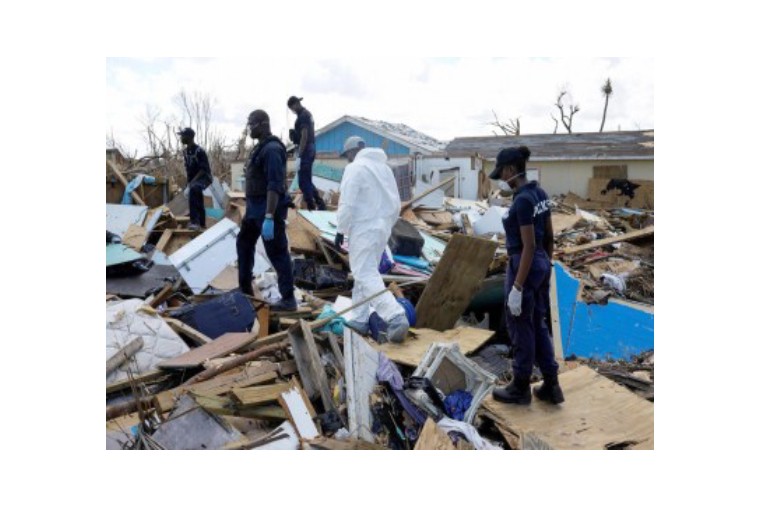- Job Market
- Upload Ad Requests
- Rates
- Home
- Video
- About Us
- Contact Us
- Business Showcase
- Archives
- Blogs
- Upload Advertisements
- Video News Release
- Front Pages
- Community Notices
- Law Enforcement
- Government
- Community Voice
- Health Care
- International
- Sports
- Politics
- Community
- Entertainment
- Advertorial 2
- Non-Profit Organisation(NPO)
- Adopt a Pet
- Tourism
- CIIPO
- Taste of Class
- Opinions & Editorial
- Environment
- Outstanding Employee
- Outstanding Performance
- Celebration
- Gardening
- Beneficial Ownership
- Tips and tricks
- Cover Stories
- Cost of Living
- Development
- Employment
- Education
- Arts and Culture
- Business
- Global News Briefs
- Hurricane Watch
- Breaking News
- Regional
- Public Notices
- Local News
- Lifestyle
- Finance
- Economic
- Election Center
- COVID - 19
- UK Territories
- Advertorial
- History
- Inspiration
- The Panel
- The Interview
- Cayman Conversation
- Community Notices
- Law Enforcement
- Government
- Health Care
- Sports
- Election Center
- Cayman Conversation
- More
- Front Pages
- Community Notices
- Law Enforcement
- Government
- Community Voice
- Health Care
- International
- Sports
- Politics
- Community
- Entertainment
- Advertorial 2
- Non-Profit Organisation(NPO)
- Adopt a Pet
- Tourism
- CIIPO
- Taste of Class
- Opinions & Editorial
- Environment
- Outstanding Employee
- Outstanding Performance
- Celebration
- Gardening
- Beneficial Ownership
- Tips and tricks
- Cover Stories
- Cost of Living
- Development
- Employment
- Education
- Arts and Culture
- Business
- Global News Briefs
- Hurricane Watch
- Breaking News
- Regional
- Public Notices
- Local News
- Lifestyle
- Finance
- Economic
- Election Center
- COVID - 19
- UK Territories
- Advertorial
- History
- Inspiration
- The Panel
- The Interview
- Cayman Conversation
Subscribe
A LITTLE COMPASSION
A LITTLE COMPASSION

By Mike Jarvis, London UK
With each passing day, more harrowing accounts are coming to the fore of what residents of the Bahamas had to endure during the passage of Hurricane Dorian.
The heart-rending stories tell of how lives and livelihoods have been laid to waste, and the almost insurmountable challenge facing individuals, families and the society itself to rebuild following the devastation.
Equally harrowing and devastating are the emerging accounts of signs of intolerance by some Bahamians towards non-nationals, especially Haitians, clearly borne out of the stress of the magnitude of their loss.
It might be just a handful who are giving regrettable voice to this intolerance, but the harsh tones reverberate and risk labelling an entire society at both ends of the spectrum.
Not all Bahamians are intolerant and xenophobic; not all Haitians and other non-nationals - especially from the Caribbean - are illegal migrants in the Bahamas and are burdens or blights on the society.
And neither group can be blamed for the hurricane and the unimaginable destruction it has caused in the Bahamas.
All have been impacted by the forces unleashed by Hurricane Dorian.
But mishandled, a negative narrative surrounding immigration, especially in these circumstances, can stoke that most egregious of human nature; xenophobia - the fear and lack of trusting of those perceived to be different. Those classified as ‘the others’.
It’s dangerous.
Hurricane Dorian’s devastation has not just laid bare most of Abaco Island and parts of Grand Bahama in the Bahamas, it has churned up deep-seated inequalities in what was a thriving economy.
It will be a mammoth task that will take years and massive injections of funds to restore the tourist paradise islands to their pre-Dorian postcard attractiveness.
But that will have to come along with huge amounts of soul searching into the sensitive issue of immigration.
It’s noteworthy that some regional governments are appealing directly to their national in the Bahamas to abide by the immigration laws - and if they are there illegally to return to their homelands.
Immigration is, has always been, and will no doubt continue to be a global social powder keg issue, particularly illegal immigration.
We have seen it with Brexit in the United Kingdom; with the Mediterranean migrants crisis in Europe; and the Venezuelan migrants in Trinidad.
It’s also evident in the United States with the policies of President Trump (albeit ramped up) and others before him; and in the Bahamas, Turks and Caicos Islands and elsewhere, the continuing issue of Haitian migration - much of it illegal.
It’s accepted that immigration must be managed, and illegal immigration poses huge socio-economic challenges, sometimes requiring tough and unpopular policies.
Understandably, there are limits to how much any society can absorb at a given time with the demands on its administrative systems to cope.
Some societies strain under the pressure and it takes just one unfortunate situation to bring to the fore, festering underlying intolerances surrounding immigration.
It’s reported that many of those still unaccounted for in the Bahamas might never be found or identified for the simple fact that they were not known in the system; undocumented migrants - illegal aliens.
The authorities who already have their hands filled to overflowing with the massive task of rebuilding would be minded to place equal emphasis on rebuilding the physical infrastructure, as well as on improving, as far as necessary, tolerance within the society.
The physical infrastructure of the Bahamas might have taken an enormous pounding from Hurricane Dorian, but there’s no question that the indomitable spirit of Bahamians, with the help and support of their regional and international partners, will rise like the proverbial Phonenix…not from ashes this time but from the battering inflicted by Hurricane Dorian.
It will take huge amounts of funds and investment, but more importantly, it’s clear that it will take huge amounts of labour, beyond what’s available in the country and the Bahamian diaspora.
The answer lies in migrant labour. And here’s where Bahamian authorities would want to ensure that their immigration rules and procedures, especially how they are interpreted and implemented, are fit for purpose and filtered throughout the society.
Mainstream media reports and social media accounts of remarks directed at Haitians and other non-nationals mainly from the Caribbean, might certainly warrant the attention of the local authorities.
Much of this is targeted at the country’s large Haitian community.
Migration especially from Haiti - legal and illegal - has been a monumental challenge for the Bahamas over the years.
Fleeing strife, poor economic conditions and seeking a better life has driven hundreds - possibly thousands - to enter the country, many through the proper channels but many also illegally; arriving mainly in barely-seaworthy boats making the perilous journey.
Much of the post-hurricane frustration and trauma is being vented at Haitians and other non-nationals, mainly from the Caribbean
Left unchallenged, such misguided and venomous remarks gain traction and by the time the scale of it is noticed, it’s already deeply embedded in a cancerous xenophobic blight on the entire society.
Leaders at all levels society must also be very careful in their use of language, when addressing issues of immigration, particularly illegal immigration.
A few intemperate remarks in the heat of a populist moment can demonise an entire group of people and do irreparable harm to community relations.
Especially in times such as these in the Bahamas, a little compassion goes a long way...and could be a wise investment in the rebuilding effort ahead.
Online Poll
Independent or Party: Independents top the Category with 23 Candidates. Select your preference
Popular News
Mexico beat Cayman 20-10 in ‘Big Match X’ Rugby
05 Jun, 2024
CIOC announces team for Paris 2024
11 Jul, 2024












Comments (0)
We appreciate your feedback. You can comment here with your pseudonym or real name. You can leave a comment with or without entering an email address. All comments will be reviewed before they are published.